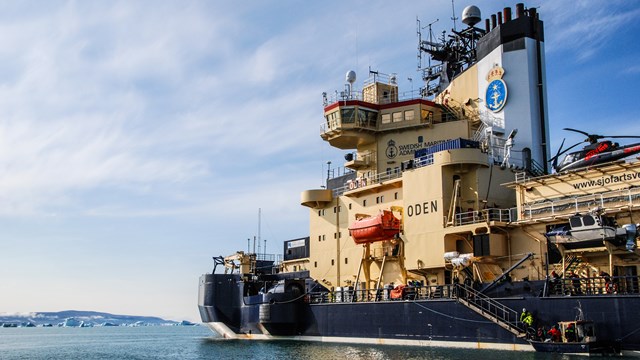EURASIAN ARCTIC C4 2023
På grund av situationen i Ukraina har planeringen av expeditionen EURASIAN ARCTIC C4 2023 med det geografiska område som beskrivs i utlysningen stoppats.
Från slutet av juli 2023 till september 2023 genomför isbrytaren Oden en forskningsexpedition till Euroasiatiska Arktiska Oceanen och Transpolardriften. Expeditionens fokus blir att studera kopplingar mellan euroasiatiska grundhav och arktiska djupbassänger för klimat-kryosfär-kolkretslopp-miljöföroreningar, EURASIAN ARCTIC C4.
Eurasian Arctic C4 bygger på resultaten från internationella forskningsexpeditioner och forskningsprogram under det senaste decenniet som International Siberian Shelf Study (ISSS) och den svensk-rysk-amerikanska SWERUS-C3, en forskningsexpedition i Norra ishavet som undersökte sambanden mellan klimat, kryosfär och kol (C3), samt IPCC:s specialrapport Havet och Kryosfären i ett Förändrat Klimat.
Expeditionen syftar till att adressera flera stora utmaningar inom klimatförändringar och aktuell forskning i Arktis: funktion, sammanlänkningar och respons från havet, biogeosfären och kryosfärssystemen under nuvarande och historiska klimatförändringar.
Snabba fakta
Slutet av juli 2023 - september 2023
Fartyg: Isbrytaren Oden
Plats: Euroasiatiska Arktiska Oceanen och Transpolardriften

